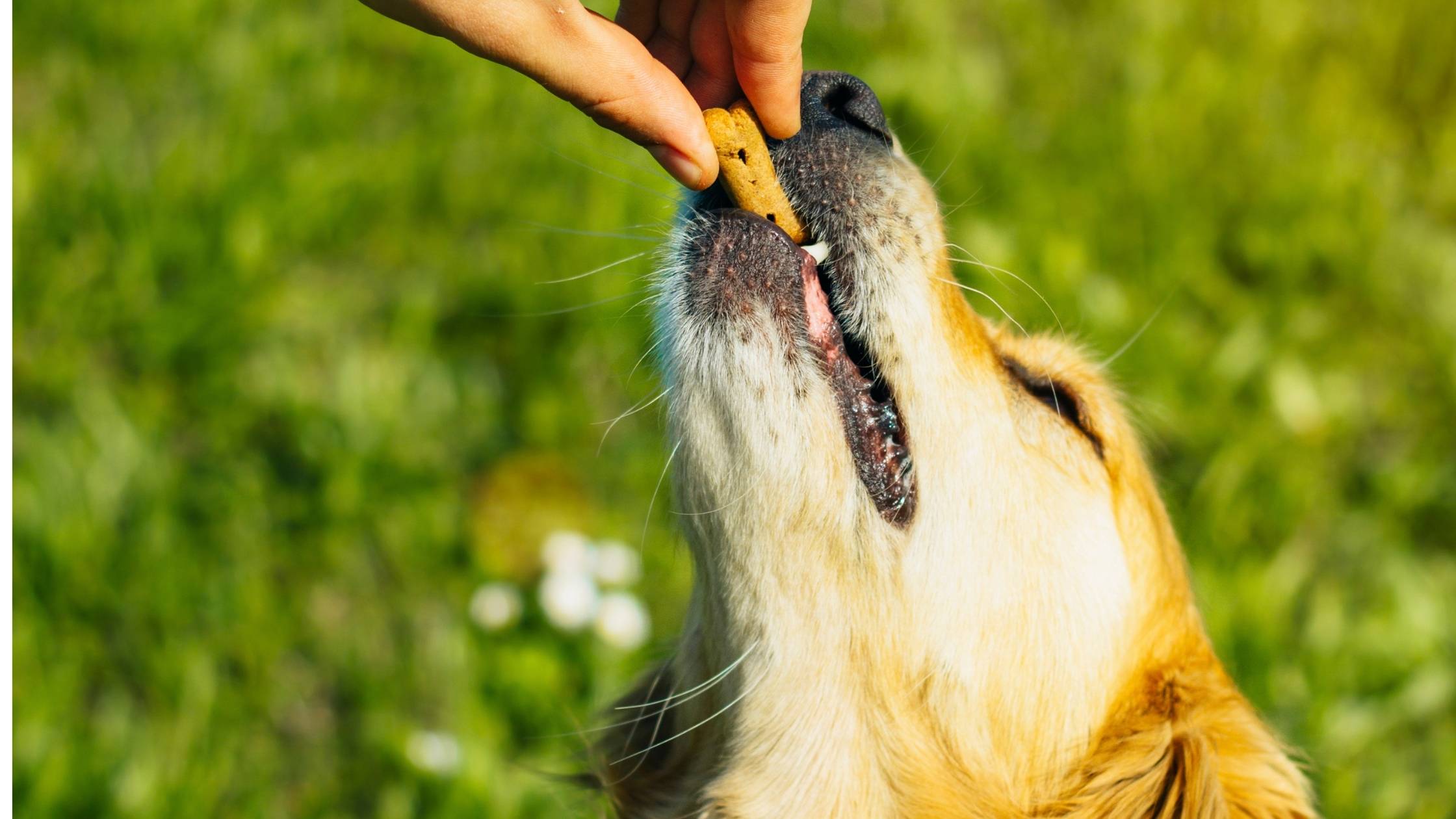Last Updated on 11/17/2021 by Veronica Jones
Pop tarts are a popular sugary snack enjoyed by children and adults as a breakfast, afternoon snack or treat.
Pet owners like to show our furry friends how much we love them by sharing our treats. But can dogs eat pop tarts? What will happen if your child leaves a half-eaten pop tart on the side and your pup gobbles it up before you have a chance to move it? Keep reading to find out.
What are pop tarts?
Pop tarts are rectangular shaped pastries that are filled with a variety of fillings such as strawberry, chocolate and fudge and covered with sweet frosting. You can eat them hot or cold, but most people eat them warmed up for a breakfast treat.
Sound delicious? Whilst they sound harmless, it’s important to know the potential effects of sharing human food with our pets.

Can dogs eat pop tarts?
Yes, your pup can safely eat certain flavors of pop tart, but it’s not recommended as a good choice of treat for our pets. Pop tarts contain lots of sugar, salt, fats, calories and carbohydrates that can harm a canine’s health if eaten regularly. Chocolate pop tarts should be avoided as they could contain xylitol, an artificial sweetener that is toxic to dogs.
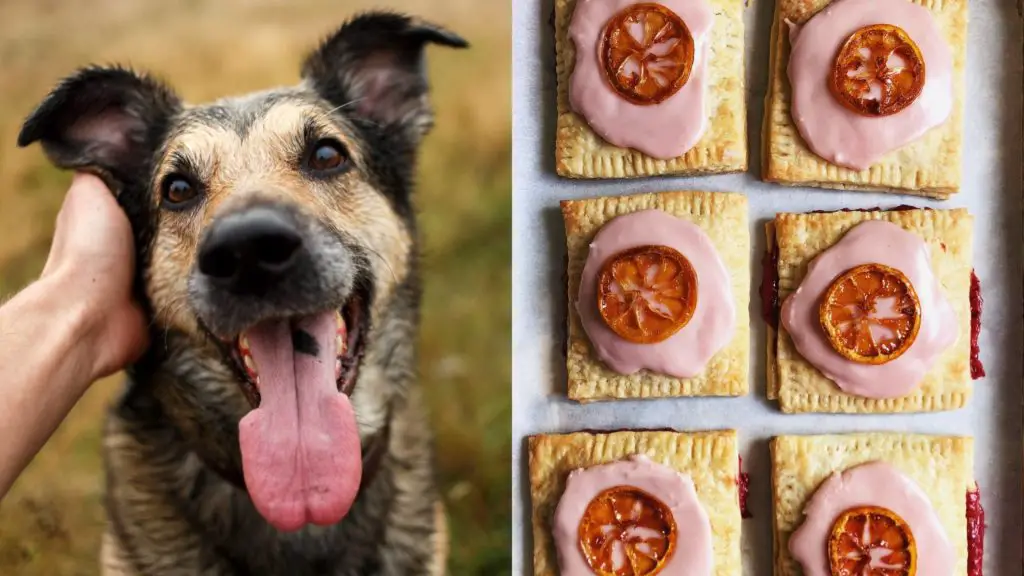
Which pop tart ingredients could harm canines?
Are pop tarts bad for dogs? Let’s look at pop tarts in more detail, and which ones are particularly bad for our four-legged friends.
Sugar – frosted strawberry pop tarts in particular will contain more than your dog’s recommended intake. Avoid giving your pet foods that contain sugar as this can lead to an upset stomach, cavities, weight gain, metabolic changes and diabetes.
Additives – if your dog consumes food that is high in additives, it can also lead to diabetes. Diabetes can be extremely difficult to reverse in dogs, which is why it’s important to prevent diabetes rather than try to treat it.
Chocolate – Theobromine and caffeine are two toxic ingredients that are both present in chocolate. Dark chocolate contains higher levels than white chocolate, so it’s important to check the ingredients of pop tarts to find out which chocolate it contains before giving it to your dog. Signs of chocolate poisoning include excessive panting, vomiting and muscle twitching. Seek urgent medical attention if your dog has consumed chocolate. A chocolate pop tart should not be given to your dog.
Salt – too much salt is bad for dogs. Whilst a little bit will just make them extremely thirsty, excessive amounts can lead to salt poisoning. Salt poisoning requires urgent veterinary advice. Treatment will vary depending on how much salt has been consumed. For mild cases, allowing your dog to drink small amounts of fresh water regularly will help your dog to naturally flush the salt out of his body. In severe cases, your dog may need to be admitted to the veterinary hospital for oxygen and IV fluid therapy.
Carbohydrates – carbs provide a source of energy for canines, however carbohydrates found in the pastry of pop tarts provide no nutritional benefit for humans or dogs.
Fat – when a dog’s diet contains too much fat, obesity and acute pancreatitis are serious health conditions that may occur. Loose stalls, abdominal pain and swelling are other health problems that canines suffer with as a result of weight gain.
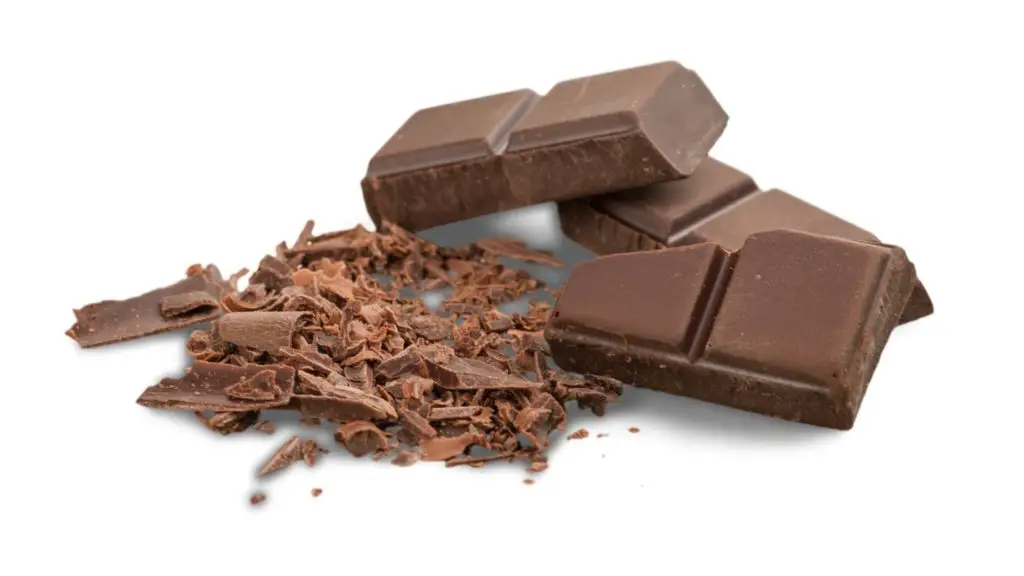
What happens if my pup eats too many pop tarts?
If your dog ate a few too many pop tarts, try not to panic. In the same way that eating too much of a good thing can make humans sick, the same principle applies to dogs. If your pet dog manages to get inside a container full of pop tarts and eats the lot, chances are he will experience a poorly tummy and sickness. Overeating causes sickness and the sugar in pop tarts can be difficult for a dog to digest. However, if the symptoms don’t pass within 24-48 hours or you notice other symptoms, consult your vet.
Too much sugar in a dog’s diet can lead to diabetes and obesity. Early signs of diabetes in canines include:
• Increased hunger and thirst
• Urinating more
• Weight loss
• Low energy levels
If untreated, diabetes can develop into a more serious condition called diabetic ketoacidosis (DKA) that can cause vomiting, diarrhea, collapsing and not eating. If your dog shows any signs of DKA, you should contact your vet who will provide veterinary advice.
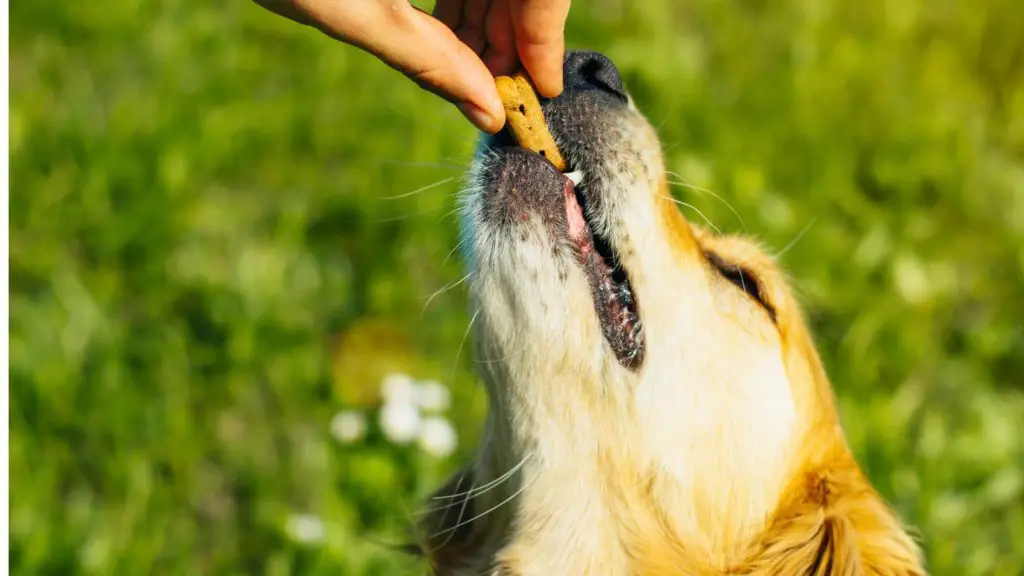
Can puppies eat a pop tart?
Whilst a small pup will not come to any significant harm from eating a caramel color or strawberry pop tart, it’s not recommended because of the high fat and sugar levels. A pup’s diet is a crucial part of its development and introducing too many sugary, unhealthy foods early on could lead to excessive weight gain and other health problems.
What sweet alternatives can you give your dog?
Dogs will love eating pop tarts as much as humans do. However, there are several other choices of treats that are better for a dog’s health than pop tarts. If your dog loves fruit, bananas and blueberries are considered a safe choice if given in moderation. Dog-safe peanut butter is a good option or sweet vegetables such as carrots. Alternatively, opt for healthy, organic treats that have been designed for dog consumption.
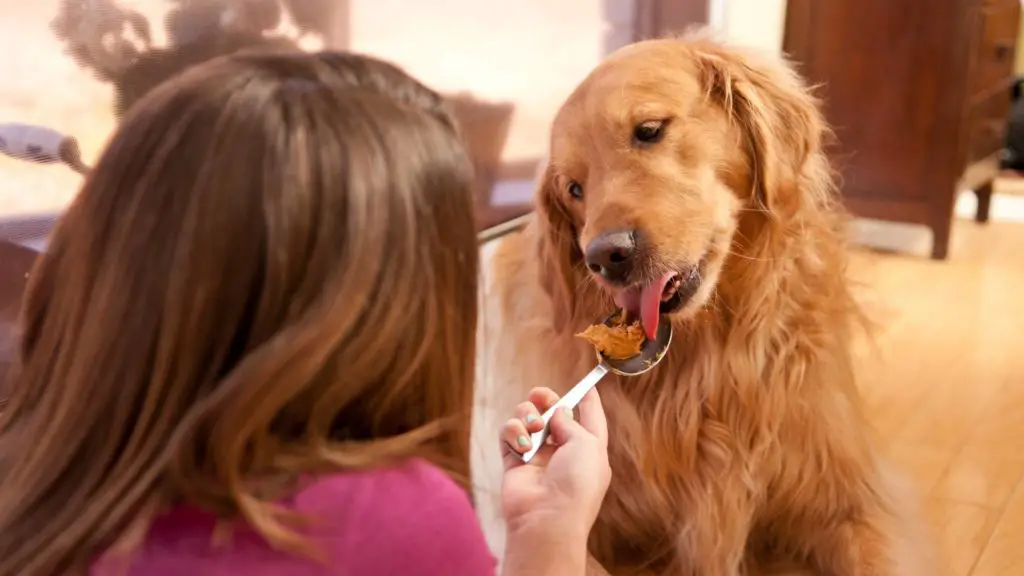
Pop tarts and dogs
If you really can’t resist giving your pup a pop tart, check the ingredients first to make sure it doesn’t contain xylitol. If your dog eats ingredients are safe, it won’t cause any harm if he enjoys a rare pop tart alongside his usual dog food. If you’re worried about your dog’s reaction after trying a new food or notice any unusual symptoms, seek advice from your veterinarian.
Looking for More Great Articles About What Your Dog Can (or Can’t) Eat?
- Can Dogs Have Water Chestnuts?
- Can Dogs Eat Sugar Cookies? Are they Safe for Dogs?
- Can Dogs Eat Rice Krispies, or Rice Krispie Treats?
- Can Dogs Eat Whipped Cream: What You Need to Know
References
- PDSA “diabetes in dogs” https://www.pdsa.org.uk/pet-help-and-advice/pet-health-hub/conditions/diabetes-in-dogs Accessed 20th October 2021
- IAMS “how much salt should dogs have” https://www.iams.com/dog/dog-articles/importance-sodium-your-dogs-diet Accessed 20th October 2021
- Pet MD “why dogs shouldn’t have sugar” https://www.petmd.com/dog/slideshows/6-reasons-why-your-dog-shouldnt-have-sugar#slide-1 Accessed 20th October 2021

